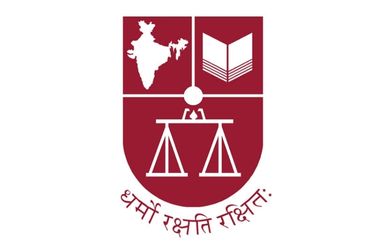At a Glance
NLSIU was the first National Law University established in India to pioneer legal education reforms. The University has remained a leader in the field of legal education in India for over 30 years. NLSIU has been consistently ranked No 1 in the National Institutional Ranking Framework since 2018 – the year when NIRF law rankings was introduced.
Commenced from
1988
On Campus Students
1355
Faculty
89
Programmes
14
Study
Undergraduate Degrees
The five-year integrated undergraduate B.A. LL.B (Hons) Degree Programme is the flagship degree at NLSIU that offers students training in a range of legal and non-legal subjects. NLSIU pioneered this five-year programme in India with an intention to provide a strong foundation upon which students can choose to pursue professional options or further academic opportunities.
Postgraduate Degrees
NLSIU’s Postgraduate Programmes include the one-year Master of Laws (LL.M.) Programme, the two-year Master’s Programme in Public Policy (MPP), and our newly launched 3-Year LLB (Hons) Programme. The MPP is an interdisciplinary programme that provides comprehensive training in designing, translating, and evaluating the efficacy of policies.
Research Degrees
The Research Programmes are intended for students and practitioners keen on pursuing advanced studies, research and scholarship. The University offers the following research degree programmes: Ph.D (Law), and Ph.D Interdisciplinary Programme.
Online & Hybrid Programmes
The Online and Hybrid Programmes offered by NLSIU’s Professional And Continuing Education (PACE) is intended to make legal education more accessible to interested students and practitioners, desiring flexibility with location and time. We offer eight programmes to graduates of any discipline from a recognised University.
Research
Over the last three decades, NLS has played a significant role in legal research and reform. This has included working on key legislation that has shaped India’s development. Its specialised research centres have been repeatedly called upon to shape laws and improve implementation in intellectual property, child rights, and environmental laws, among many others. Our focus areas for the path ahead include state capacity in the 21st century, issues of law and technology, the future of work and legal system reform.
NLSIU Community

I came to NLS in November 2022 to work with a pioneering team that set up a queer archives called QAMRA (Queer Archive for Memory, Reflection and Activism). An archive isn’t only for historians, but for anyone who’d like to think with the rich and varied voices/practices of the past that have shaped our present or remain as potential for the future. I’ve also had the pleasure of being part of the The Writing Centre (TWC) team since 2023. We focus on writing in the classroom through worksheets, where students learn how to read analytically, build academic arguments, engage with sources and write clearly.
Since July 2024, I transitioned into a full-time teaching role, and have been teaching Sociology to undergraduate students. I like to think of the classroom as a place where ideas can be tested and played with, without having to be complete or politically correct, and encourage my students to think aloud. Teaching Sociology in the classroom is like a dance between a hermeneutics of suspicion (reading a text with some skepticism to expose underlying, hidden ideas) and a hermeneutics of trust (where we strengthen another’s view point and see how it can be illuminating – an empathetic approach). A sociological imagination makes us willing to be astonished by the world, and astonished too by what we consider reasonable ourselves. As my gen-Z students might put it: “delulu is the solulu”.
Ammel Sharon
Assistant Professor,
NLS Archives In-Charge,
& Co-director, The Writing Centre, NLSIU











